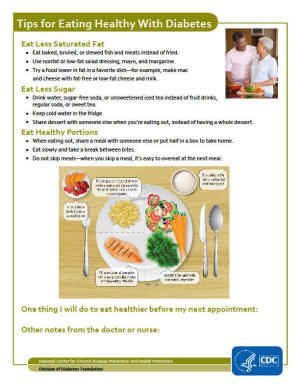|
 Abraham Lincoln Memorial Hospital’s 2015 community health need
assessment identified one group of chronic diseases banded together
as "cardio-diabesity." Obesity - diabetes - and cardiovascular
diseases - share many traits with overlapping root causes. Abraham Lincoln Memorial Hospital’s 2015 community health need
assessment identified one group of chronic diseases banded together
as "cardio-diabesity." Obesity - diabetes - and cardiovascular
diseases - share many traits with overlapping root causes.
In Logan County adults:
- Obesity up from 19.5 percent in 2001 to 30.4 percent in 2015
- Diagnosed diabetes rose 2.3% (2006) to 9.9 percent (2009)
- Diabetes rose to 11 percent (2014) and trending upward
- High blood pressure has risen 5.5 percent
- Medicare individuals being treated for atrial fibrillation
represents a higher rate than 75% of counties in the United
States.
- Visits to the ER for diabetes at 44.2 per 10,000 population
(2012) were alarmingly high.
According to the Center for Disease Control (CDC), the
prevalence of diagnosed type-2 diabetes increased six-fold
in the latter half of the last century.
 The risk factors such as obesity and physical inactivity have
played a major role in this dramatic increase."
Now, one other health matter. Dietary prevention measures for
the cardio-diabesity triad of chronic diseases also partially
addresses another medical condition of local concern, colorectal
cancer.
- Logan County incidence of colorectal cancer at 48.5
cases per 100,000 population is higher than other counties
in Illinois (45.3) and in the U.S (40.6).
Simple measures you can take to avoid these diseases
While targeted at controlling diabetes, the CDC offers the
following simple, sound advice which can work for everyone
wanting to live a healthier life.
Be active
A number of studies have shown that regular physical
activity can significantly reduce the risk of developing
type 2 diabetes. Type 2 diabetes is associated with obesity.
Lose weight
Research studies have found that moderate weight loss and
exercise can prevent or delay type 2 diabetes among adults
at high-risk of diabetes.
Eating habits
Eat smaller portions. Learn what a serving size is for
different foods and how many servings you need in a meal.
Eat less fat. Choose fewer high-fat foods and use less fat
for cooking. You especially want to limit foods that are
high in saturated fats or trans fat, such as:
- Fatty cuts of meat.
- Fried Foods
- Whole milk and dairy products made from whole milk.
- Cakes, candy, cookies, crackers, and pies.
Salad dressings.
- Lard, shortening, stick margarine, and nondairy
creamers.

Increase your physical activity
Physical activity can help you control your blood
glucose, weight, and blood pressure, as well as raise
your “good” cholesterol and lower your “bad”
cholesterol. It can also help prevent heart and blood
flow problems, reducing your risk of heart disease and
nerve damage.
[to top of second column] |

Older persons might walk briskly
Experts recommend moderate-intensity physical activity for at least
30 minutes on 5 or more days of the week. Some examples of
moderate-intensity physical activity are walking briskly, mowing the
lawn, dancing, swimming, or bicycling.
If you are not accustomed to physical activity, you may want to
start with a little exercise, and work your way up. As you become
stronger, you can add a few extra minutes to your physical activity.
Do some physical activity every day. It’s better to walk 10 or 20
minutes each day than one hour once a week.
Talk to your health care provider about a safe exercise plan. He or
she may check your heart and your feet to be sure you have no
special problems. If you have high blood pressure, eye, or foot
problems, you may need to avoid some kinds of exercise.
For more information, see Controlling Your Diabetes from the Center
for Disease Control and Prevention’s (CDC) publication.
https://www.cdc.gov/diabetes/managing/eatright.html
For help getting on the right fitness track you might schedule a
visit with Mark Craig, Exercise Physiologist at Abraham Lincoln
Memorial Hospital. Or, see one of several personal fitness trainers
at the Lincoln Park District, Reps Gym, and other fitness facilities
in the area.
You may also want to consider Memorial's Weight Loss and Wellness
Diabetes Services, which is there to help people reduce and prevent
complications associated with diabetes. Registered Dietician and
Certified Diabetes Counselor Jennifer DiPasquale can help you learn
how to manage diabetes and practice good nutrition.
And, one last thing if you are older or have a family history of
colorectal cancer, schedule an exam or have a fecal/occult test
performed.

[Sources cited from the CDC and the Logan
County Health Need Assessment/Jan Youngquist]
Memorial’s Weight Loss and Wellness Center is based on the
nationally recognized, evidence-
based model of Geisinger Health System. Memorial’s program includes
a medical (non-surgical) weight loss program; accredited bariatric
surgery program; diabetes services; outpatient nutrition services;
and
fitness. It provides physicians a comprehensive resource to refer
their patients to for individualized
counseling and education.
Collaborative partners include ALMH, Memorial Medical Center,
Memorial Physician Services, Springfield Clinic, SIU School of
Medicine, Healthy Communities Partnership.
|